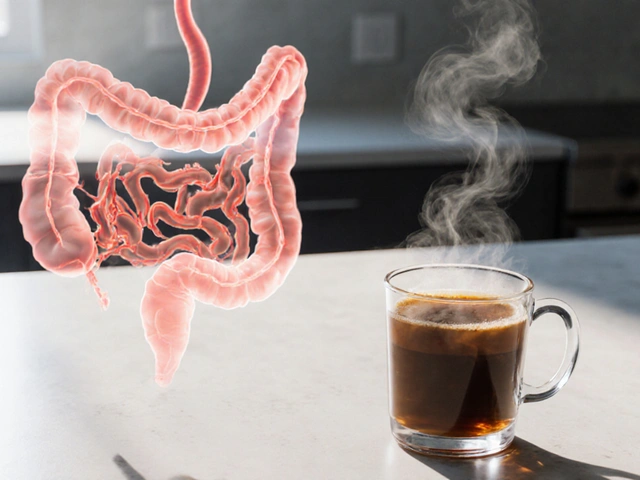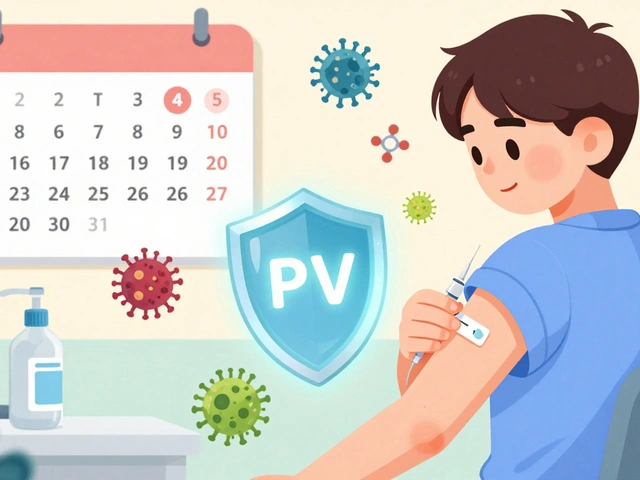Hypophosphatemia: What Low Phosphate Means for You
Low phosphate in the blood—hypophosphatemia—can start quietly but cause big problems. Your body needs phosphate for energy, muscle work, and keeping bones strong. When levels drop, you might notice weakness, tiredness, or trouble breathing. Severe cases can lead to confusion, seizures, or heart issues. This page helps you spot the cause, know what tests matter, and understand simple treatment steps.
Why phosphate drops and who’s at risk
Phosphate falls for a few clear reasons. Not eating enough, heavy alcohol use, or certain gut problems that stop absorption can lower phosphate. Some medicines—like antacids that bind phosphate, certain diuretics, and some cancer treatments—can also cause a drop. Two common clinical scenarios are refeeding syndrome (when nutrition is restarted after starvation) and rapid shifts with insulin or after treating diabetic ketoacidosis; both push phosphate into cells and make blood levels fall.
People with chronic kidney disease often have the opposite problem, but if a kidney patient gets too much phosphate-binding treatment or loses intake suddenly, levels can fall. Older adults, people with poor diets, and those in ICU or recovering from chemo are at higher risk.
Signs, tests, and what your doctor will check
Early signs are vague: low energy, muscle aches, or trouble climbing stairs. Watch for muscle weakness, breathing problems, numbness, or confusion—those need urgent attention. Your doctor orders a serum phosphate test. They’ll usually check calcium, magnesium, potassium, kidney function, and maybe vitamin D or parathyroid hormone to find the cause. If you’ve recently been hospitalized, refeeding or insulin use will be part of the review.
Monitoring is simple: repeat blood phosphate until it’s stable, and check kidney tests before giving supplements. If you’re taking drugs that lower phosphate, your doctor may stop or change them.
Treatment depends on how low phosphate is and how you feel. Mild drops often respond to dietary changes and oral phosphate supplements. Good food sources include dairy, meat, fish, nuts, and whole grains. Moderate to severe hypophosphatemia usually requires medical treatment—often oral salts or IV phosphate in a hospital setting. Because replacing phosphate changes calcium and magnesium levels, clinicians watch those closely during treatment.
Practical tips: if you drink heavily, try to cut back and get a medical check if you feel weak. If you start nutrition after skipping meals, ask your care team about phosphate monitoring. Don’t self-prescribe high-dose phosphate supplements—especially if you have kidney disease. Always tell your provider about antacids, diuretics, or other meds you use.
If you have sudden muscle weakness, trouble breathing, chest pain, or seizures, go to an emergency room. For ongoing fatigue or repeated low phosphate on tests, see a primary care doctor or a nephrologist/endocrinologist for follow-up. With the right checks and simple treatment, most people recover phosphate balance and feel better fast.
Hypophosphatemia, or low phosphate levels, can mess with your bones in surprising ways. This article unpacks how phosphate keeps bones strong, what puts you at risk for deficiency, and what real steps you can take to dodge trouble. Practical prevention strategies and expert-backed facts shed light on staying healthy. Understand how food, lifestyle, and smart choices make all the difference. Read on for a complete, easy-to-follow guide on hypophosphatemia and your bones.
View Details

